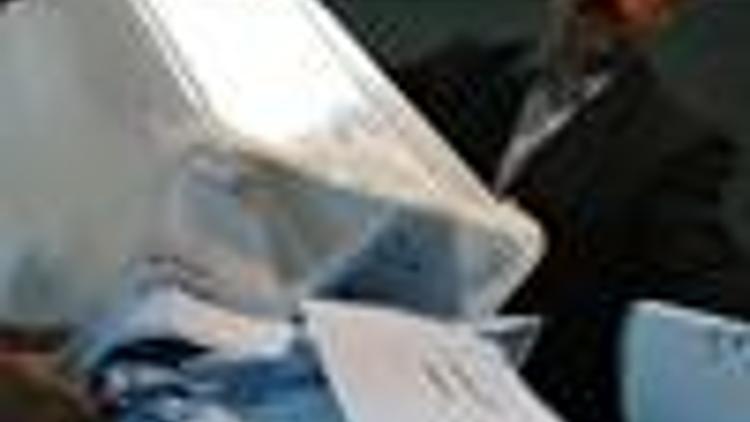Only half Iraqi voters turn out for milestone election
Güncelleme Tarihi:

Just over half of Iraq’s voters turned out for provincial elections that were hailed as a political milestone for the future of the war-torn nation, officials said on Sunday. (UPDATED)
The 51-percent turnout, however, was lower than expected, a result likely to disappoint Iraqi and
"Turnout reached 51 percent at the national level," Iraqi election commission chief Faraj al-Haydari told a press briefing, saying 7.5 million of the 15-million electorate cast ballots in 14 of 18 provinces.
Early unofficial indicators had suggested a turnout of around 60 percent, �with a tight security clampdown in place across the country that successfully prevented any major militant attacks.
The final figure was lower than the 55.7 percent seen in elections four years ago, the Iraqi High Electoral Commission said.
But there was a relatively high participation among Sunni Arabs, in stark contrast to 2005 when they boycotted the ballot en masse, infuriated by the invasion that ousted now executed dictator Saddam Hussein.
"We were expecting this turnout, because
But the turnout was far below the level of 70-80 percent that the Shiite premier said he was hoping for.
Nevertheless, Shiite candidates backed by Prime Minister Nuri al-Maliki appeared to have posted gains in the 11 Shiite-majority provinces in a vote seen as a barometer of his leadership almost three years after he took office.
"The Iraqis are seeking security and national unity and that is exactly the themes promoted by Nuri al-Maliki," Dabbagh said.
Maliki did not stand in the election, but he campaigned vigorously on behalf of the coalition and a strong showing would be a huge vote of confidence in him and his secular agenda after the years of ethno-religious violence that nearly sparked civil war.
The moderate turnout also appeared to reflect disillusionment with local governments, which have systematically failed to provide voters with such basic services as clean water, electricity and rubbish collection.
Councils each appoint a governor and oversee finance and reconstruction, with a combined budget of 2.4 billion dollars.
"We thought that the parties which came after the former regime could radically change things in terms of construction, reconstruction, services such as electricity or employment, but there is no change," Ali Jassim, a trader in the holy Shiite city of Karbala, told AFP.
Joost Hiltermann, deputy program director at the International Crisis Group, which studies conflict-torn nations, said residents’ disaffectation had caused religious parties to lose favor.
"By most accounts, public support for religion-based parties has suffered as a result," he told AFP.
The Shiite community represents 58 percent of the population, ahead of Sunni Arabs at 25 percent, Kurds 14 percent, and three percent for Christians and other minorities.
If Shiites stayed away from the ballot box, then Sunni provinces turned out in force, with Salaheddin, Saddam’s home province, recording the biggest turnout of the election with 65 percent.
The election witnessed minor organizational and logistical problems but overall "everything went smoothly, without security problems, and effectively," the U.N. special envoy to
The fact that balloting took place without major violence bodes well for U.S. President Barack Obama, who is seeking a military withdrawal in order to shift more troops to
"This important step forward should continue the process of Iraqis taking responsibility for their future," Obama said on Saturday.

